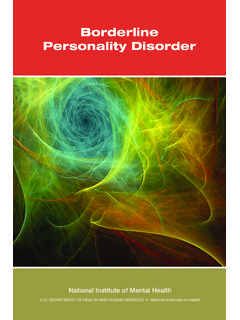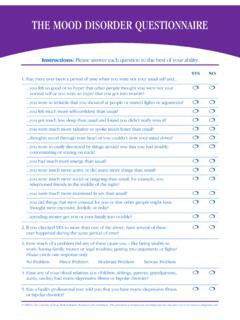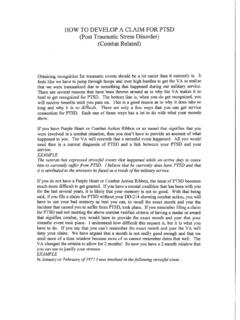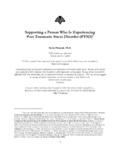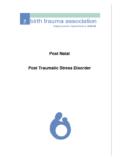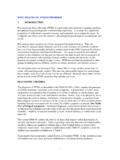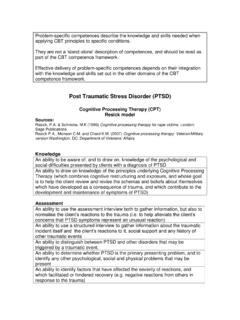Transcription of ASSESSMENT POSTTRAUMATIC STRESS DISORDER
1 7 The Complete PractitionerOctober 2006 ASSESSMENTT rauma Screening QuestionnaireYour Own Reactions Now to the traumatic EventPlease consider the following reactions which sometimes occur after a traumatic event. Thisquestionnaire is concerned with your personal reactions to the traumatic event which happened afew weeks ago. Please indicate whether or not you have experienced any of the following ATLEAST TWICE IN THE PAST WEEK: POSTTRAUMATIC STRESS DISORDERYES, AT LEASTTWICE IN THEPAST thoughts or memories about the event that have comeinto your mind against your dreams about the or feeling as though the event were happening upset by reminders of the reactions (such as fast heartbeat, stomach churning,sweatiness, dizziness) when reminded of the falling or staying or outbursts of awareness of potential dangers to yourself and others10.
2 Being jumpy or being startled at something unexpectedReprinted with permissionThe Trauma Screening Questionnaire1 (TSQ) is a brief 10-item self-report measure designed to screen for posttrau-matic STRESS DISORDER (PTSD). Each item is derived from the DSM-IV2 criteria and describes either a reexperiencingsymptom of PTSD (items 1 through 5) or an arousal symptom of PTSD (items 6 through 10). Avoidance and numbingsymptoms, though also listed in the DSM-IV criteria, were not included in the TSQ in keeping with the authors goal ofcreating a useful screening instrument that was short and contain[ed] the minimum number of items necessary foraccurate case identification.
3 1 The lead author states that what the TSQ gains in simplicity and clarity more thancompensates for the absence of symptoms that may be difficult to understand and judgements that may be difficult tomake. 3 Preliminary psychometric data1 from 2 samples (rail crash survivors and crime victims) indicate that, for PTSD screening purposes, the TSQ enables excellent levels of prediction (see Scoring and Interpretation, below).Scoring and Interpretation: The authors suggest administering the TSQ at least 3 weeks after the traumatic event to allow for naturalrecovery processes.
4 An optimal cutoff point was found to be a YES response to at least 6 reexperiencing or arousal symptom items, in anycombination. A PTSD diagnosis was present in 86% of individuals in the rail crash survivors sample and 91% of those in the crime victimssample who made a YES response to at least 6 reexperiencing or arousal symptom items, in any combination. A PTSD diagnosis was notpresent in 93% of individuals in the rail crash survivors sample and 92% of those in the crime victims sample who made a YES responseto fewer than 6 reexperiencing or arousal symptom items, in any CR, Rose S, Andrews B, Green J, Tata P, McEvedy C, Turner S, & Foa EB.
5 Brief screening instrument for post- traumatic STRESS DISORDER . British Journalof Psychiatry, 181:158-162, and Statistical Manual of Mental disorders , 4th Edition (DSM-IV), Washington DC: American Psychiatric Association, CR. British Journal of Psychiatry, 181:535, 2002. [Correspondence] There is open access to this page (ie, no user name is required) on our Web site by clicking on <Subscribers Area> and then on <Trauma Screening Questionnaire>.
